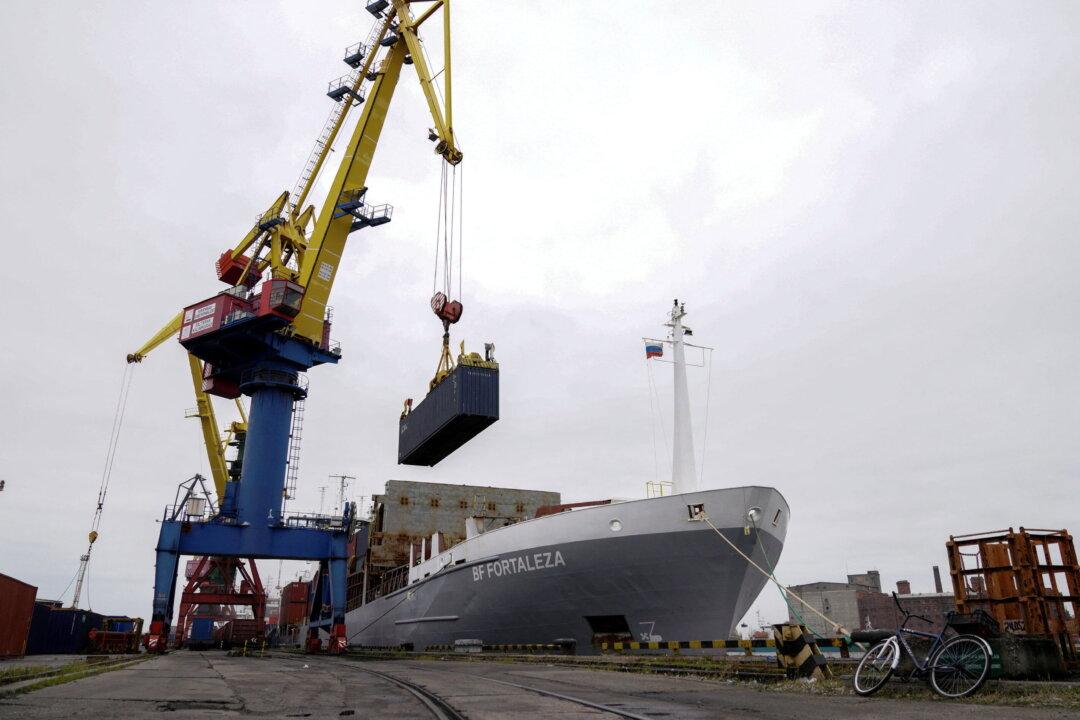MOSCOW—Moscow’s foreign ministry on Friday blamed the United States for a Lithuanian ban on sanctioned goods crossing from the Russian mainland to the Russian exclave of Kaliningrad, which has increased already high tensions between Moscow and the West.
“The so-called ‘collective West’, with the explicit instruction of the White House, imposed a ban on rail transit of a wide range of goods through the Kaliningrad region,” the Russian foreign ministry said in a statement published on Friday.





